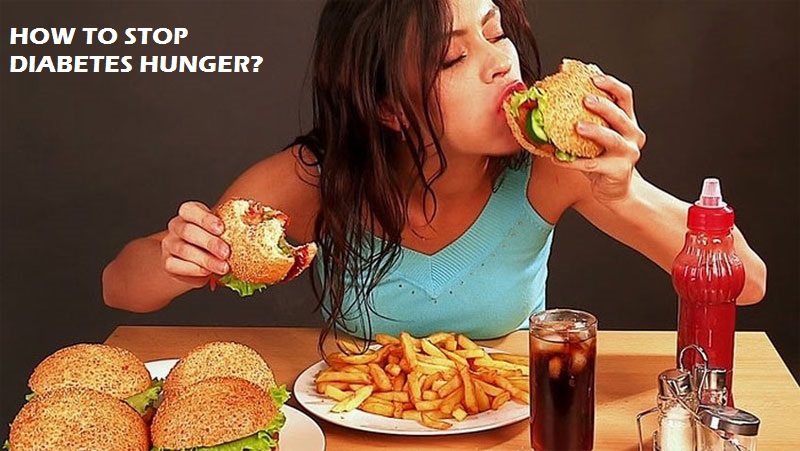Increased thirst and excessive hunger can be symptoms of diabetes, increased hunger means gaining more weight and other health complications so let’s find out how to stop diabetes hunger.
Symptoms of diabetes, such as excessive thirst and intense hunger can occur when sugar (glucose) levels reach abnormally high levels.
The most common symptoms of diabetes are:
• intense feeling of thirst
• intense feeling of hunger
• excessive fatigue
• frequent urination, especially at night
• blurry vision.
Symptoms may vary from person to person. They also depend on the type of diabetes you suffer from. So today we turn our attention to one important symptom that may indicate the onset of diabetes: hunger that persists.
What is polyphagia?
Polyphagia is the medical term used to describe excessive hunger or increased appetite and is one of the top 3 signs of diabetes, according to diabetes.co.uk.
An intensification of hunger is usually a response to normal things, such as intense exercise or other demanding and tiring activity, but polyphagia can also be the result of more serious problems, such as depression or stress.
Also known as hyperphagia, this is one of the three main symptoms of diabetes, along with polydipsia (intense thirst) and polyuria (frequent, excessive urination).
Hypoglycemia
Hypoglycemia represents a decrease in blood sugar levels and can occur in the context of food diets, among patients who are fasting for a long time, or in the context of certain pancreatic diseases (including diabetes).
Episodes of hypoglycemia are characterized by the powerful and continuous sensation of hunger, nausea, cold and wet extremities, restlessness, agitation, tremor of the extremities, paresthesias and even numbness of the fingers and lips, tachycardia, palpitations, headache, anxiety, confusion, muscle weakness, fatigue, blurred vision and coordination, difficulty speaking and walking.
The permanent feeling of hunger that occurs during episodes of hypoglycemia is a reflex act due to the latter, the body trying to restore blood sugar to normal values through food intake.
Prevention of episodes of hypoglycemia consists of a balanced diet. If hypoglycemia occurs, it can be corrected by eating foods high in sugars (eg chocolate). In severe forms, hypoglycaemic episodes can be controlled by injecting or injecting glucose.
How to stop diabetes hunger
The first thing you need to do is check your blood sugar levels. If they are too low you need a fast carb intake. If it is too high you need to follow your doctor’s advice on these types of situations.
Anyone suffering from excessive hunger will find it extremely difficult to lose weight. Adopting and following a diet can be quite difficult, especially since the feeling of hunger can be even more pronounced.
There are a number of measures that anyone can follow to control excessive hunger.
- Walking – Sometimes the reason a person is hungry is that, in fact, he is bored and has nothing else to do. It is important to take action to get rid of boredom. One simple thing is to walk.
- Chewing gum – If he is hungry, a person can chew gum, of course for diabetics, no sugar chewing gum. In this way, the feeling of hunger can be alleviated by fooling the body through the gesture associated with chewing.
- A limited number of meals – The number of meals and daily snacks will be limited. Ideally, you should eat three meals a day and a maximum of two snacks. It would be advisable for snacks to be healthy and composed of nuts or seeds rather than chips.
- A real feeling of hunger – It can be pleasant and quite simple for anyone who plays on the computer or watches TV to have a snack even if he is not really hungry. If a person is not really hungry, he should not eat.
- Protein – Eating small amounts of protein at each meal helps stop the feeling of excessive hunger. The best sources of protein are turkey, chicken, tofu, or yogurt.
